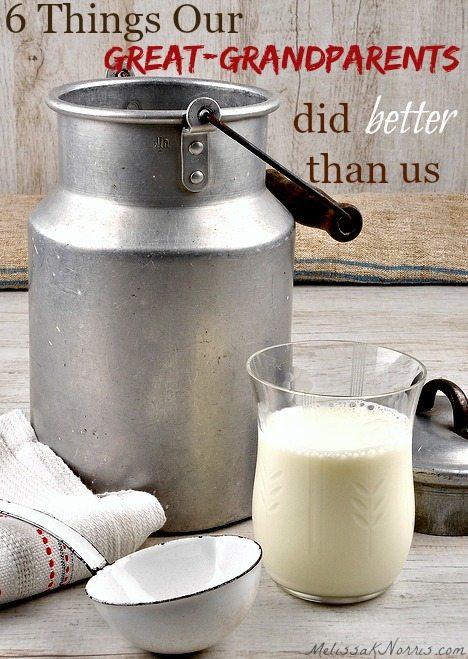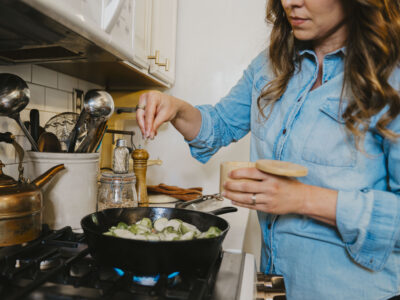As advanced and modern as we like to think of ourselves in society, I feel we’re actually a lot worse off in many ways than our great-grandparents. We may have more technology and I’m not saying I’m not grateful for it, but sadly, more people today lack skillsets and a sense of pride in their work compared to past generations. (I know this isn’t true of everyone, in fact, if you’re reading this, then it most likely does not apply to you!)
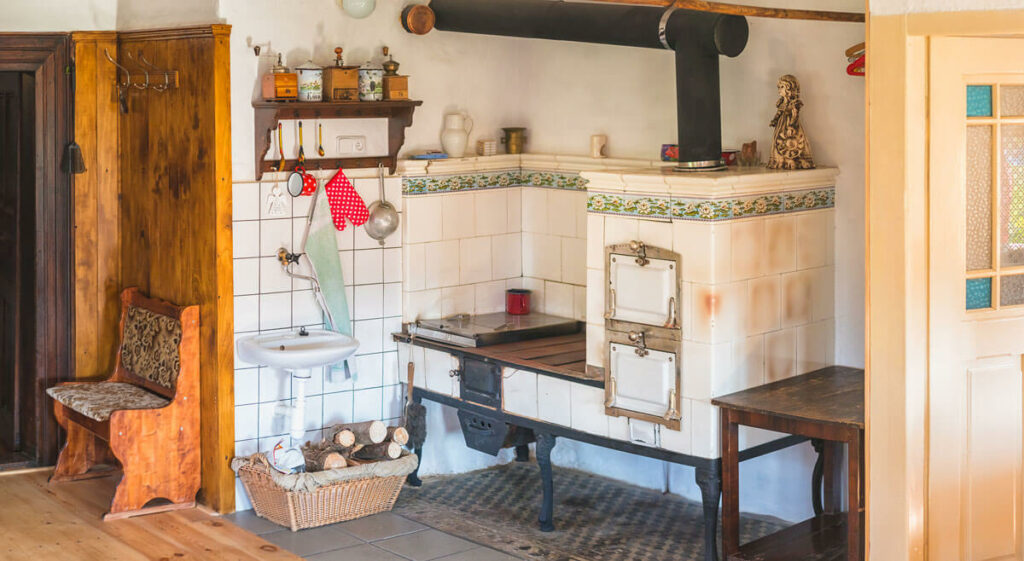
If you’ve seen the video interview I did with my dad where he shared 17 self-sufficiency tips he learned from the Great Depression, or the interview I did with him where he shared how he survived winter without power growing up, then you know that I’ve learned from the best!
🍞 Struggling With Sourdough?
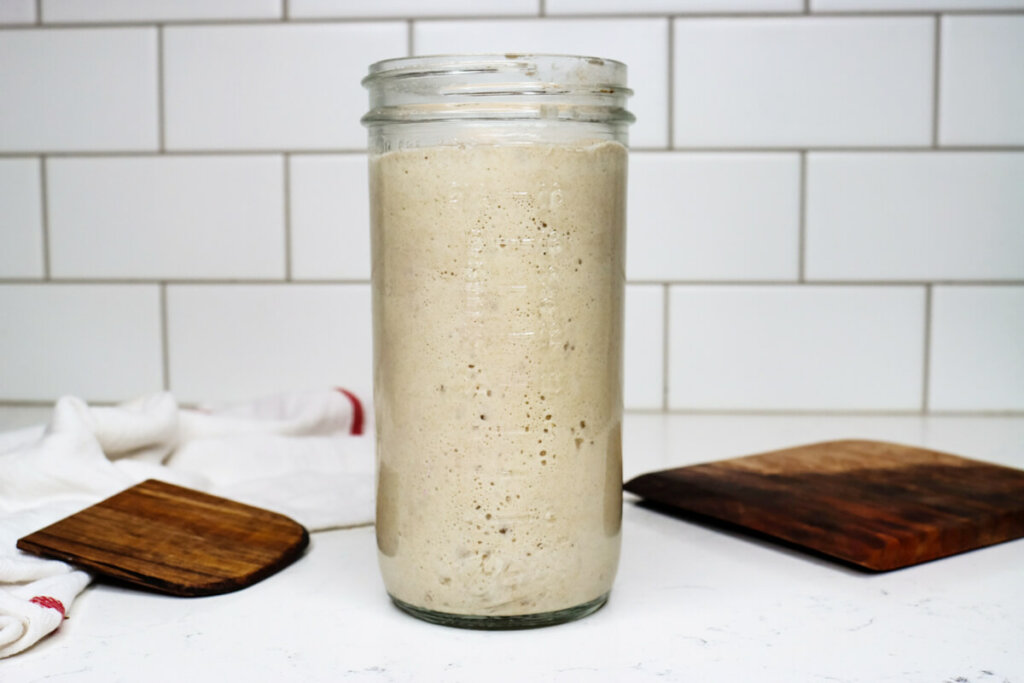
If your starter won’t take off, your loaves are dense and hard, or sourdough just flat-out overwhelms you…
👉 I’ll show you how to fix all of it.
Join my FREE workshop and learn how to make a bubbly, active starter—the right way, from Day One.
Natural Remedies Made Simple

Start your home apothecary with confidence—even if you’re brand new. Learn how to choose the right herbs for your body using the simple principles of herbal energetics.
Discover how warming, cooling, drying, and moistening herbs affect your body—so you can stop guessing and start making remedies that actually work.
I’m very thankful to have had parents who passed down these skillsets to me, and I want to do everything I can to ensure these get passed down for generations to come.
The Problem With the “Hurry-Up Lifestyle”
We’re entrenched in a world of hurry up, keeping up with the newest and greatest thing, looking for that one item that’s going to give us an edge, a to-do list a mile long, and multi-tasking like we’re an octopus with eight arms.
I’m not judging, because I’m guilty of all of these things in one form or another. And if you’re honest with yourself, I’m willing to lay money down that you are too, to one degree or another.
There are a lot of things we have going for us today, but there are a few areas where we need to take a look and reconsider going back to our great-grandparents (or grandparents depending upon your age) and learning from them.
Here are the six things I believe our great-grandparents did better than us!
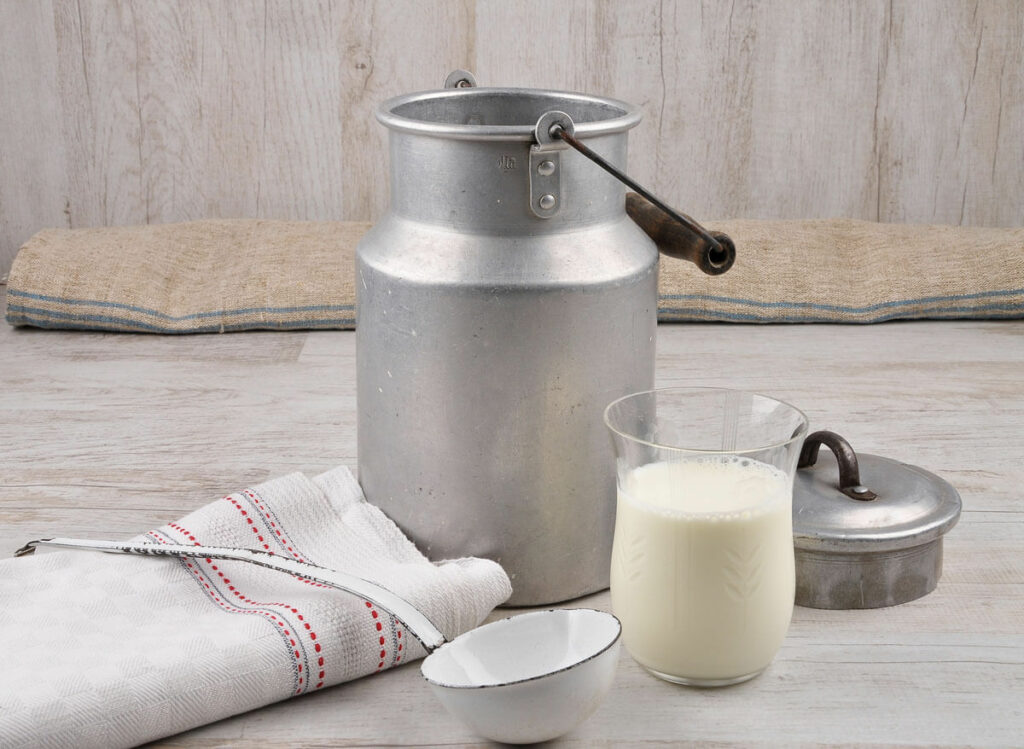
Shop & Use Local
While there’s nothing more local than growing it yourself (hello backyard garden grocery shopping, I love you!) the next best thing is buying it from someone you know.
During the Great Depression years and before, if you weren’t raising it yourself, then you knew the person you were buying it from.
My grandparents had a milk cow, but for those who didn’t, there was a dairy and local milkman who delivered the milk by wagon. You could stop by the dairy, see the cows, and talk to the man providing your milk. You knew the people you were helping support by buying direct.
I’m so fortunate to have a local milk source where my milk comes in glass jars. I then return those jars the following week when I pick up my next week’s supply.
If you needed lumber, you went and put in your order at the local mill. You saw the log, told the sawyer what you wanted, and you’d come and pick it back up from him when it was milled and ready.
We’ve become very separated from the process of our goods. Maybe you know someone locally who has a sawmill and could use your business?
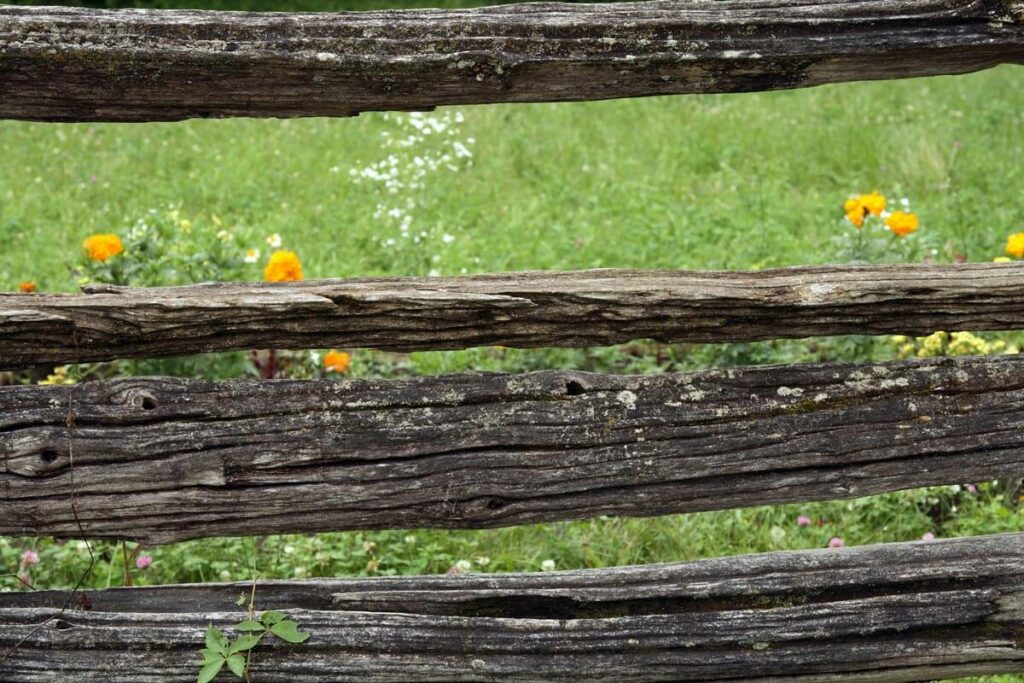
Dedicated Skillsets
A hundred years ago people had dedicated skillsets like sewing, quilting, basket making, and carpentry. People took pride in the things they were making with their hands. They knew the people who would be wearing or using their handiwork. It wasn’t just an assembly piece in a factory.
Our great-grandparents had skillsets and knew how to use them. They didn’t rely on stores and huge chains for their needs and goods. They learned how to do things themselves, or to trade or barter for what they didn’t.
They were the original DIYers and, a lot of times, their lives depended upon it.
Their work became their artform. My father always told me,
If a job’s worth doing, it’s worth doing well. Give anything you do your best.
As an adult, I see the wisdom in his words and remember them when I’m doing something I’d really rather not be. I may have had this pep talk with myself while scrubbing a pan or two out before.
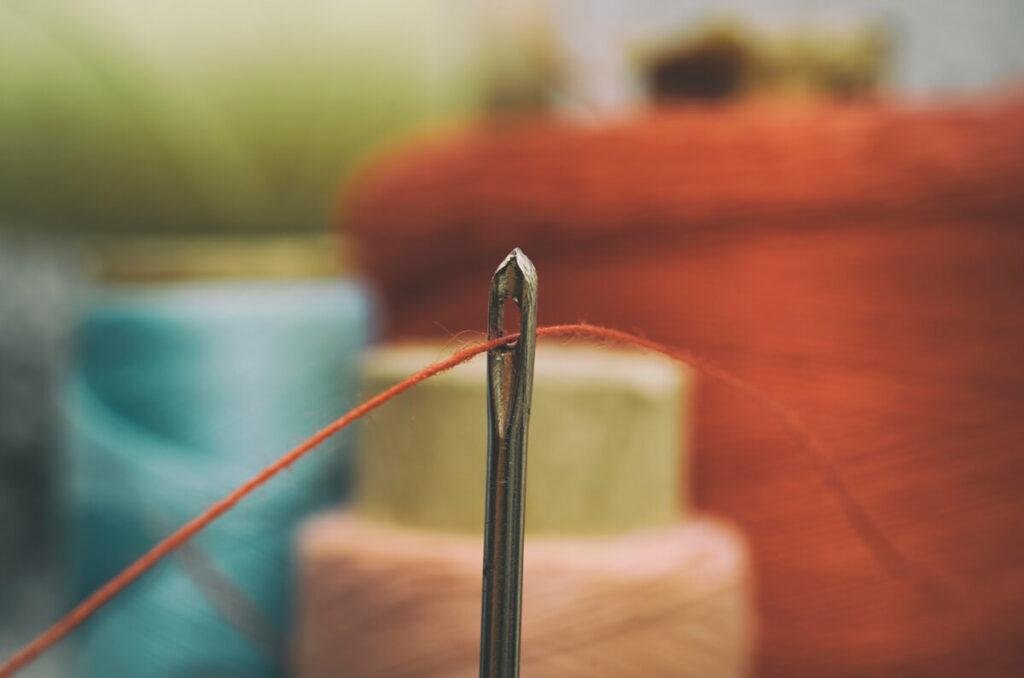
Sewing
Most family’s made their own clothes and knew how to mend them, sew on a button, or hem a pant leg as needed. I realize there are still quite a few folks who know how to sew, but it’s not being taught at home or in schools like it used to.
Look in your closet or in your children’s closet. How many items are handmade? How many times do you throw out a piece of clothing because it gets ripped instead of mending or patching it?
A store-bought outfit was a big deal to our grandparents. Most people wore home-sewn clothes, many made from the flour sacks when times were lean. Or when Papa’s shirt couldn’t be mended anymore or Mother’s dress was too frayed, it was cut down into a small dress or shirt for the youngest member of the family.
Not enough material left for clothing? Then it went into the rag bag to be made into a quilt or rag rug for the floor.
You might not become a full-on seamstress but it’s a good idea to learn the basics.
How to mend a seam, how to gather fabric, how to hem. These basic skills will let you do a lot more than you think.
Find someone who sews and ask them for a lesson. Most are happy to teach the skill. You don’t need to buy a sewing machine to learn some good hand sewing skills.
This is a great beginner’s sewing kit for less than $15.
I love these vintage-looking stitching transfer patterns for embroidery work.
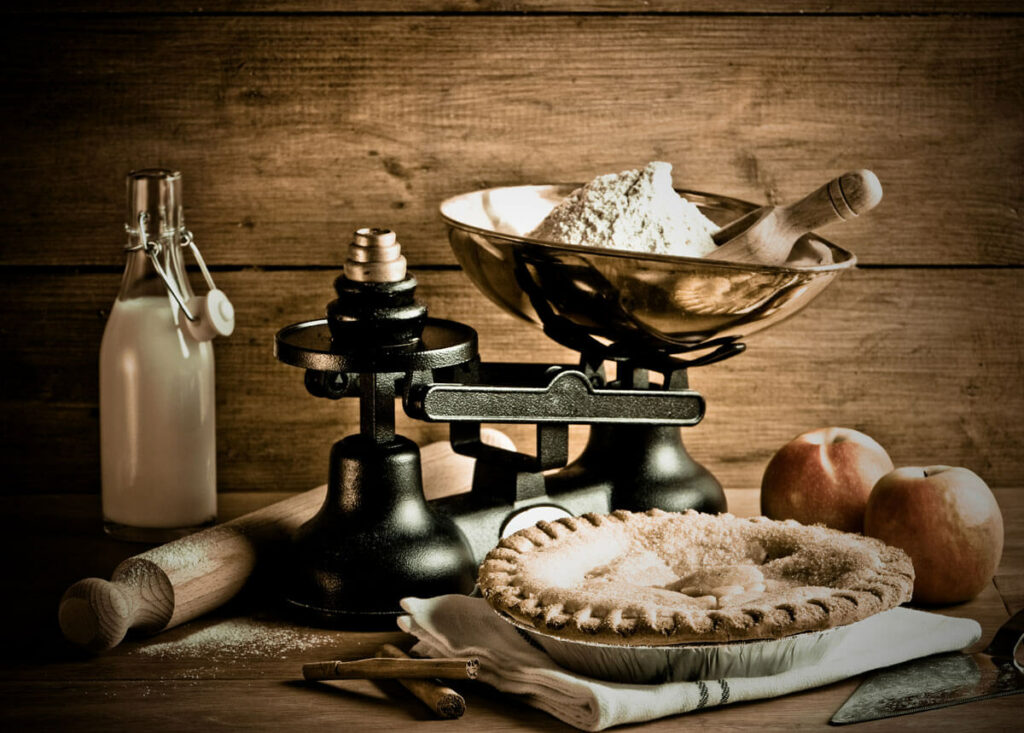
Cooking & Baking From Scratch
If you’ve been around here for long then you know that making things from scratch is kind of my jam! I mean, I wrote a book called The Made From Scratch Life, so I’m not over-exaggerating here!
Back then there weren’t store-bought versions of every food item you needed. You stocked a full larder (read 8 Foods Everyone Should Be Storing and 6 Tips on Buying Food in Bulk to learn more). You were grateful to have food to put on the table and didn’t complain that it wasn’t what you “wanted”.
You swapped recipes with your neighbor or at church potlucks (does anyone else love potlucks?). You handed down your most favorite and best dishes to your children and taught them as they were right there with you, learning and helping to put the meal on the table.
Looking for from-scratch versions without any processed ingredients? Check out our full recipe section on the blog to get started. I also wrote another book called Hand Made, which has over 100+ old-fashioned recipes!
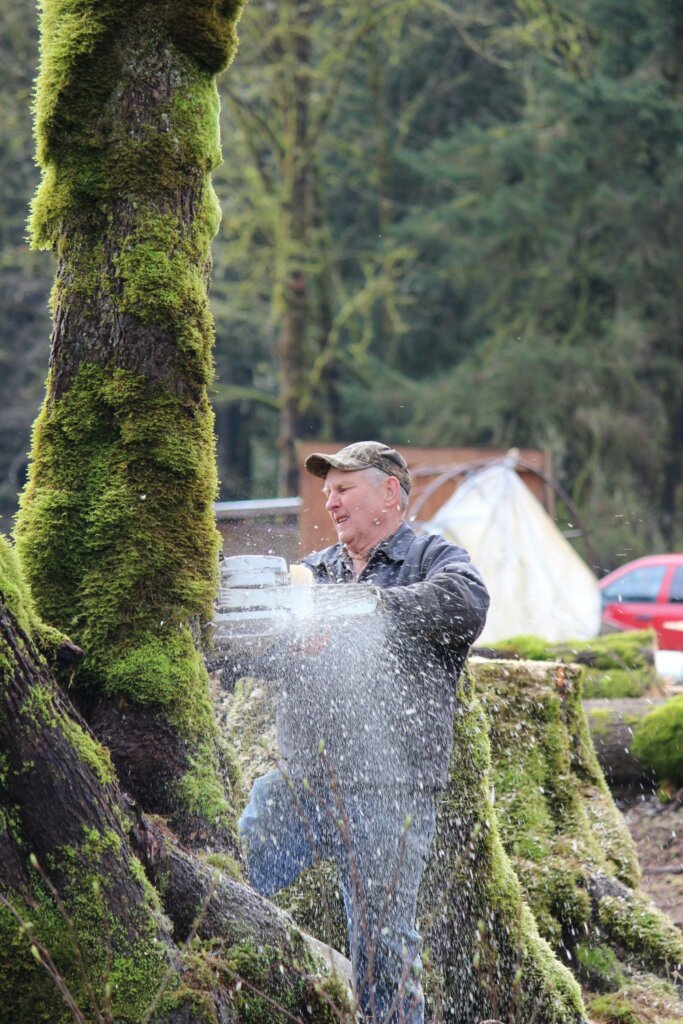
Self-Sufficiency
Even though my family and I raise all of our own meat and a good portion of our vegetables here on our property, in our day-to-day life, we’re still quite dependent on a lot of modern conveniences brought to us by large companies or entities.
I mean, let’s face it, I bring this to you via the internet… but I’m okay with that because I know if I have to, we have the skills and the means to make it on our own.
Learn how to can and preserve your own food in my free video series here
We save our own heirloom garden seed every year, we have fruit trees and plants (learn how many fruit trees and berry bushes you need to plant per person for a year’s worth of food), I preserve and put up a lot of our own food, I grow a medicinal herb garden where we harvest and preserve all the herbs we need each year, we forage, and have quite a bit of our grandparent’s old-fashioned knowledge!
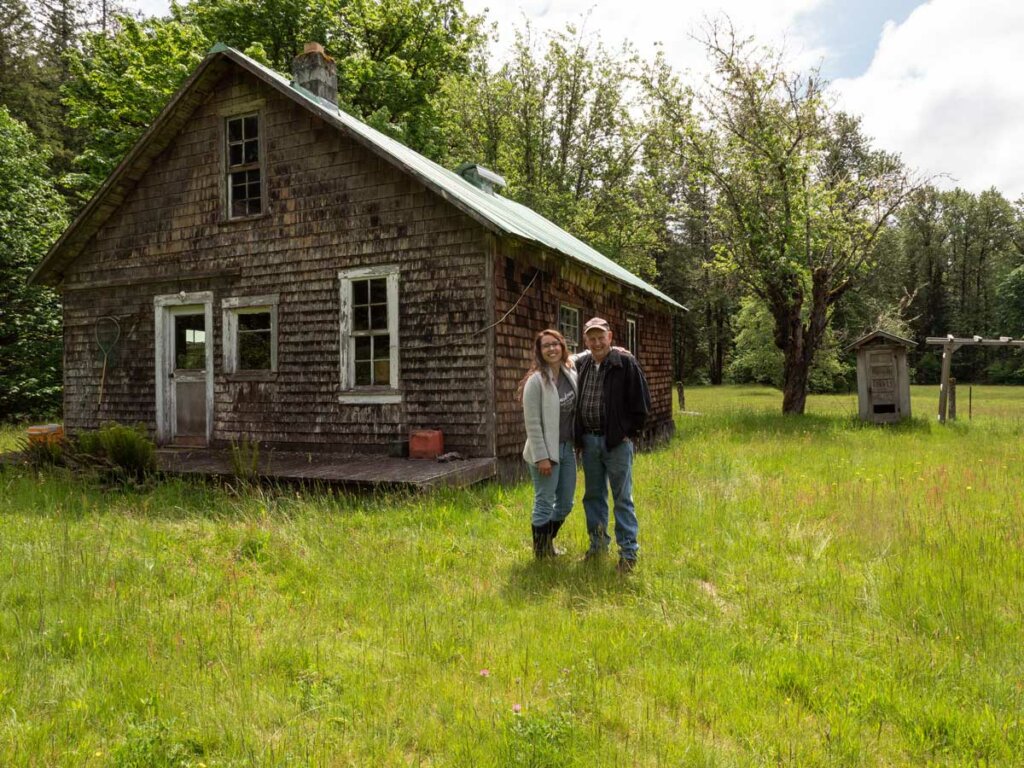
Helping One Another
There was a reason our great-grandparents had barn raisings and roofing parties. They knew how important community sufficiency vs. self-sufficiency was because when they needed help, that’s who they’d be calling on.
Communities banded together to help those who ran into misfortune.
Need a cup of sugar? Run over to your neighbor’s house to borrow it, because you’d do the same for them. Many times, these favors were returned with baked goods, flowers, and most definitely a hand-written thank you note.
There are many ways of helping people, sometimes it’s simply being a friend or watching out for their place when they’re gone. In an emergency, your neighbor very well might be the person that saves your life.
In the Pioneering Today Academy, we’re a true “virtual” community of helping each other out with tips and suggestions in our private group. Even here on the blog and in the comments section on these posts, it’s so great and I’m honored to be a part of your journey and what I consider our “online neighborhood.”
Other Simple Living Articles You Might Like
- 10 Things Our Grandparents Reused During the Great Depression
- 17 Self-Sufficiency Tips from the 1940’s & Great Depression Live Interview
- Time Management Skills for the Homestead
- Time & Budget Saving Tips from the Great Depression
- Great-Depression Era Money Saving Tips With Potatoes
- Building a Great Depression Era Pantry
- 13 Steps to the Simple Life Your Great Grandparents Knew
- 7 Depression Era Tips to Stretch Your Food Budget
